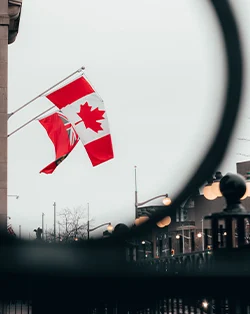What Is a Pardon and Waiver?
A Canadian Pardon is an official forgiveness granted by the Canadian government to individuals who have been convicted of a criminal offense. It helps remove barriers caused by your past record, making it easier to find employment, travel internationally, and fully participate in society.
Trusted by Canadians for Pardon and Waiver Services
Step-by-Step Application Process
Check your eligibility
Confirm you have completed all legal obligations and satisfied the required waiting time.
Collect required documents
Gather court documents, police certificates, and any other relevant paperwork.
Complete the application forms
Fill out the official pardon application carefully.
Submit fingerprints
Have your fingerprints taken by an authorized provider to verify your identity and background.
Pay the application fee
Include the required payment with your application.
Send your application
Submit your completed application and supporting documents to the Parole Board of Canada.
Why Should You Apply for a Pardon?
Who Can Apply for a Canadian Pardon?


Difference: Pardon and Waiver in Canada
What Is a Pardon?
A pardon (also known as a record suspension in Canada) is a formal decision that sets aside a person’s criminal record. It acknowledges that the individual has completed their sentence and demonstrated good conduct. While it doesn’t erase the conviction, it ensures the record is kept separate and not publicly visible in most background checks. This can help restore eligibility for jobs, volunteering, and other civil rights. Professionals assist with the application process by managing paperwork, collecting required documents, and helping demonstrate rehabilitation.
What Is a Waiver?
A waiver is typically used in an immigration context—most commonly when entering the United States. If someone has a criminal record or other factors that make them inadmissible under U.S. law, a waiver may grant them temporary permission to enter. This is particularly important for travel, work, or family visits. Applying for a waiver involves building a strong application with supporting documents and legal reasoning, often with help from experienced consultants who understand U.S. entry rules and criteria.
Essential Documents for Pardon Application
Court records confirming your conviction and sentence completion
Police certificates or background checks
Proof of payment of all fines and restitution
Official fingerprint records
Completed application forms
Payment receipt for the application fee
Let’s Get Started Now
Please contact us for details about the application process and applicable fees.
We’re happy to guide you through every step.
Frequently asked questions
How long does it take to receive a pardon?
Processing times vary, but typically it takes 6 months to a year, depending on the complexity of the case.
Will a pardon erase my criminal record?
No, a pardon does not erase your record but separates it so it is kept apart from other criminal records, reducing its visibility.
Can I apply for a pardon if I have a serious criminal conviction?
Some serious convictions may affect your eligibility. It’s best to consult with an expert to understand your specific situation.
Does a pardon guarantee entry to other countries?
No, pardons do not guarantee entry; countries have their own rules regarding criminal histories.



